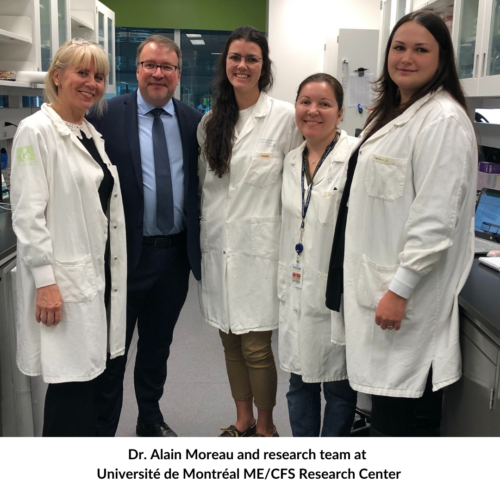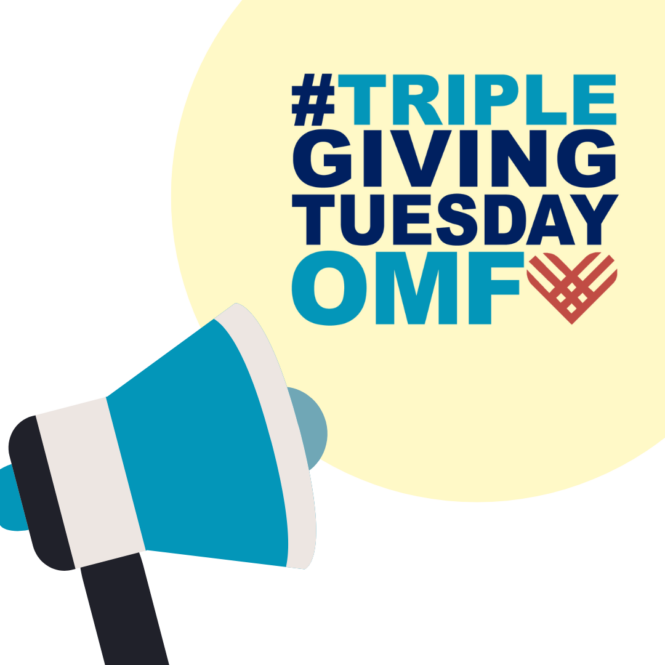

Raman Spectrometry Based Biomarker Discovery
for Myalgic Encephalomyelitis (RASPBERRY-ME)

Alain Moreau, PhD
ME/CFS is a complex disease that affects multiple systems in the body. Traditionally, the medical field focuses on one system at a time, as in the way medical specialists are organized. Research studies are usually planned in similar ways, to look at just one aspect, such as immune, endocrine, gastrointestinal, etc. Although individual characteristics of ME/CFS have been identified through a wide range of research projects, we are still missing the bigger picture of how it all fits together.
The goal of this study is to identify ME/CFS’s biomolecular signature: a combination of unique biochemical characteristics that are present only in ME/CFS. It’s like painting a whole picture of the disease in biomolecular terms. The study will use Raman Spectroscopy (RS), a chemical analysis technique that can analyze a sample without destroying it. This can provide detailed information about the chemical characteristics of the structure of a sample, like blood, or even what’s inside a single cell, including phospholipids, lipoproteins, DNA/RNA, and amino acids. The RS technique is fast, does not require costly chemicals, and won’t destroy the sample. It works by passing light through the sample and measuring vibrations.
ME/CFS is a complex disease that affects multiple systems in the body. Traditionally, the medical field focuses on one system at a time, as in the way medical specialists are organized. Research studies are usually planned in similar ways, to look at just one aspect, such as immune, endocrine, gastrointestinal, etc. Although individual characteristics of ME/CFS have been identified through a wide range of research projects, we are still missing the bigger picture of how it all fits together.
 The goal of this study is to identify ME/CFS’s biomolecular signature: a combination of unique biochemical characteristics that are present only in ME/CFS. It’s like painting a whole picture of the disease in biomolecular terms. The study will use Raman Spectroscopy (RS), a chemical analysis technique that can analyze a sample without destroying it. This can provide detailed information about the chemical characteristics of the structure of a sample, like blood, or even what’s inside a single cell, including phospholipids, lipoproteins, DNA/RNA, and amino acids. The RS technique is fast, does not require costly chemicals, and won’t destroy the sample. It works by passing light through the sample and measuring vibrations.
The goal of this study is to identify ME/CFS’s biomolecular signature: a combination of unique biochemical characteristics that are present only in ME/CFS. It’s like painting a whole picture of the disease in biomolecular terms. The study will use Raman Spectroscopy (RS), a chemical analysis technique that can analyze a sample without destroying it. This can provide detailed information about the chemical characteristics of the structure of a sample, like blood, or even what’s inside a single cell, including phospholipids, lipoproteins, DNA/RNA, and amino acids. The RS technique is fast, does not require costly chemicals, and won’t destroy the sample. It works by passing light through the sample and measuring vibrations.
This research team has used RS technology previously to study a variety of diseases, including the SARS-CoV-2 virus (COVID) in saliva and plasma.
This new study will test blood and other samples from ME/CFS patients, both at rest and after an exercise challenge, to fully characterize the baseline and changes seen after exertion. These will be compared to samples from healthy controls. It is anticipated that these full pictures of the biochemistry of ME/CFS will help researchers to differentiate between severely ill patients and those who are more mildly affected.
Results from this study will be combined with other research to better understand how ME/CFS affects the body at a biochemical level. This will create a more complete picture of the disease as a whole. It is hoped that these results can be used to develop diagnostic tests for ME/CFS, help doctors choose treatments, and determine whether the treatments are effective.
Learn more at www.omfcanada.ngo/raspberry-me
Join us today in fundraising for small clinical treatment trials!
Thanks to you, we’ve made incredible strides in collaborative research. Studies like this, have laid the foundation for OMF to move forward with small clinical trials!*
Successful small clinical treatment trials will lead to larger clinical trials using existing and new drugs. Small clinical trials, if found to be effective, are the best way to fast-track treatment. Accelerating research is our top priority at OMF. Let’s make this year better than ever by restoring hope and health together.
* Please note, we are still in the planning and development phase of treatment trials. We are not actively recruiting patients for small treatment trials at this time.
Donate now and have your gift TRIPLED!
This #TripleGivingTuesday, generous OMF donors have agreed to TRIPLE match donations up to a total of $500,000. And you can make a gift any day of the week now through International Giving Tuesday, on November 29, 2022.
Can’t donate? No problem. There are many ways to join our community and get involved!
Check out some options below.
Spread the word!
 Encourage your friends and family to join you in creating real impact throughout November by sharing what our mission means to you and why you support our organization (here are some ideas).
Encourage your friends and family to join you in creating real impact throughout November by sharing what our mission means to you and why you support our organization (here are some ideas).
2022 OMF
Supported Research Activities
So far this year, we have already funded over $5.5 million in research activities. We are excited to
share the following list of projects that we have funded in 2022.
2022 OMF SUPPORTED
RESEARCH INITIATIVES
- Neutrophil Assessment in ME/CFS
- Raman Spectrometry Based Biomarker Discovery for ME/CFS
- Home Visit ME/CFS Study
- Muscle Biopsy and plasma study into Post-Exertional Malaise-ME/CFS and Long COVID
- Single Day Longitudinal Study in ME/CFS
- Following COVID to Long COVID to ME/CFS Multi-Center Study
- Network Medicine for discovering repurposed drugs for treatment possibilities in ME/CFS
- Erythrocyte Biomechanics in ME/CFS
- Deep Assessment of Neuroinflammation in ME/CFS
- Sleep Study in ME/CFS
- Deep proteome and metabolome profiling study of ME/CFS
- Personalized Automated Symptom Summary (PASS/CAT)
- OMF Data Center for Data Repository and Computational Analysis
- Bateman Horne Medical Education Research Center (MERC)
Throughout #TripleGivingTuesday, we will be featuring overviews of select projects. Stay tuned for more information!

